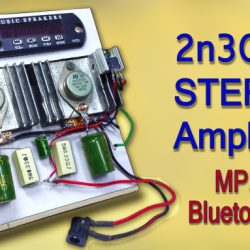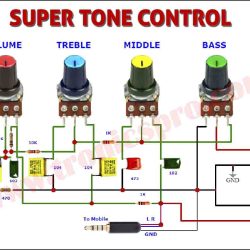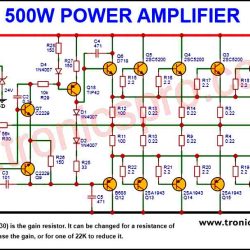The MJE15031 pinout defines the lead arrangement of this high-performance PNP silicon power transistor, commonly used in audio power amplifiers, voltage regulators, and industrial control systems. It is the complementary pair of the MJE15030 NPN transistor, and together they form efficient push-pull Class AB amplifier stages for superior sound quality and thermal stability.

Introduction to MJE15031 PNP Transistor
The MJE15031 is a high-voltage PNP power transistor designed for both linear and switching applications. It offers a collector-emitter voltage (Vce) of 150V, a collector-base voltage (Vcb) of 150V, and a collector current capacity of 8A, allowing it to handle substantial power loads efficiently.
Its TO-220 package ensures reliable heat dissipation and mechanical stability, making it suitable for audio frequency power amplifiers, DC-AC converters, and industrial control circuits. With excellent linearity, high transition frequency, and low saturation voltage, the MJE15031 ensures consistent and distortion-free output.
MJE15031 PNP Transistor
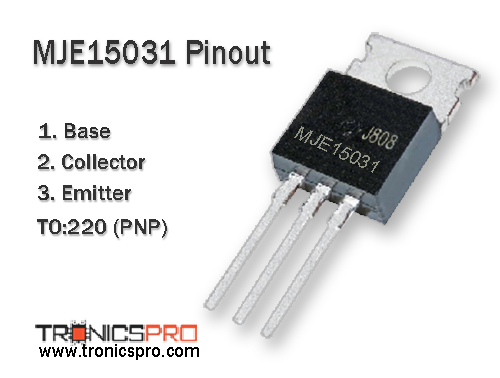
Pinout of MJE15031

Understanding the MJE15031 Pinout Configuration
The MJE15031 pinout follows a Base-Collector-Emitter (B-C-E) configuration when the transistor’s flat side faces forward and the leads are oriented downward. This layout is standard for TO-220 power transistors and ensures easy integration with most amplifier or regulator circuit boards.
Pin Configuration of MJE15031 Pinout
| Pin# | Pin Name |
|---|---|
| 1 | Base |
| 2 | Collector |
| 3 | Emitter |
Key Features of MJE15031 Transistor
- High voltage and current handling capability
- Excellent linear response and low distortion
- Reliable performance under thermal stress
- Fast switching and high transition frequency
- TO-220 package for superior heat dissipation
- Complementary to MJE15030 (NPN)
- Suitable for audio amplifier and regulator designs
MJE15031 Transistor Datasheet and Specifications
- Collector-Emitter Voltage (Vce): -150V
- Collector-Base Voltage (Vcb): -150V
- Emitter-Base Voltage (Veb): -5V
- Collector Current (Ic): -8A
- Power Dissipation (Pc): 50W
- DC Current Gain (hFE): 30 to 160
- Transition Frequency (fT): 30 MHz
- Package Type: TO-220
- Pin Configuration: Base-Collector-Emitter (B-C-E)
- Complementary Pair: MJE15030 (NPN)
Working Principle of MJE15031 Transistor
The MJE15031 operates as a current-controlled amplifier or switch, conducting when a small current is applied to its base terminal. As a PNP transistor, it conducts when the base is driven negative relative to the emitter.
In amplifier circuits, it typically handles the negative half of the waveform, while its NPN complement MJE15030 processes the positive half. This push-pull operation enhances power efficiency, reduces crossover distortion, and maintains signal fidelity in high-quality audio systems.
More Circuit Layouts

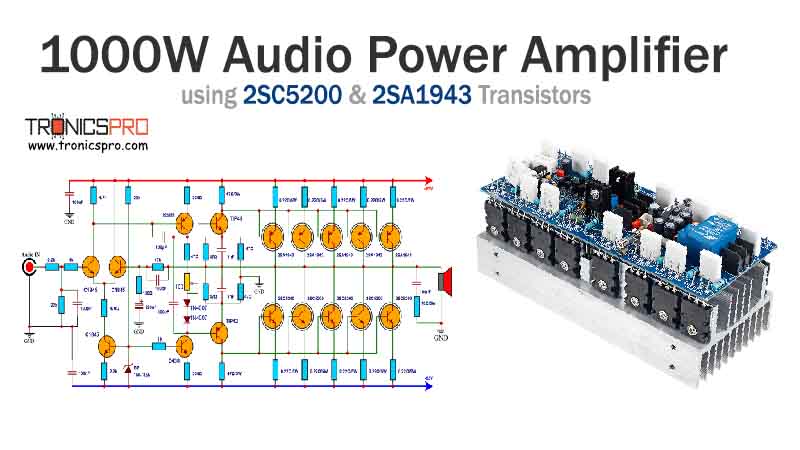
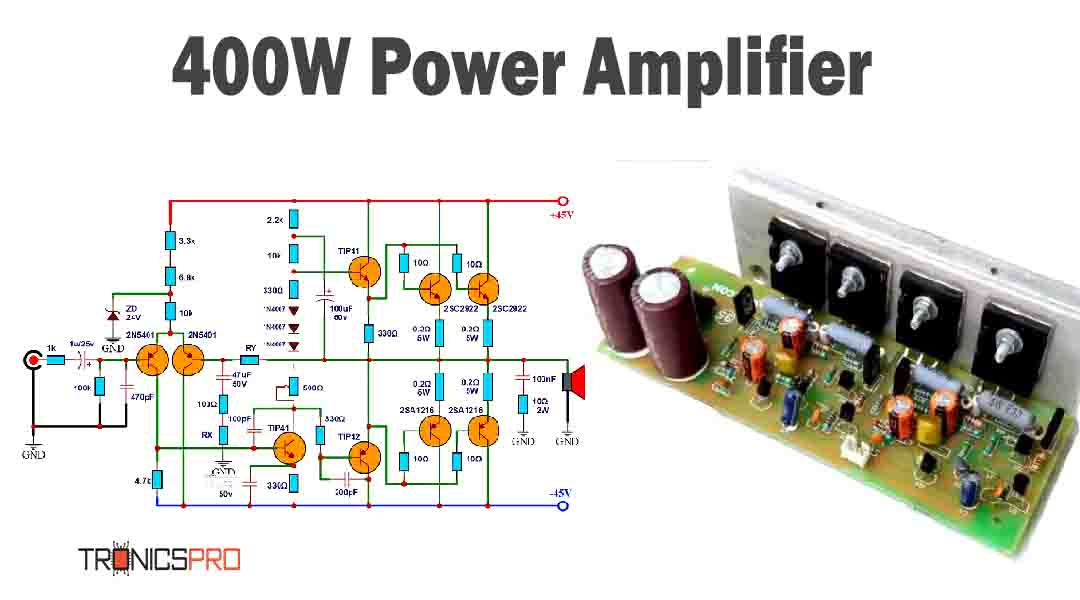
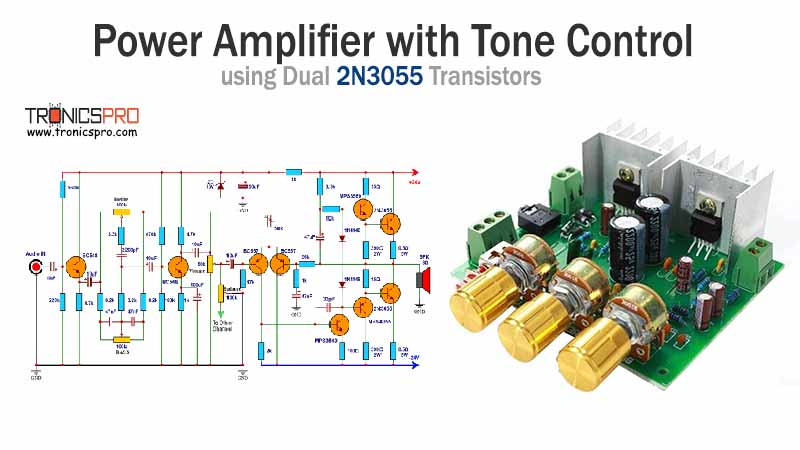
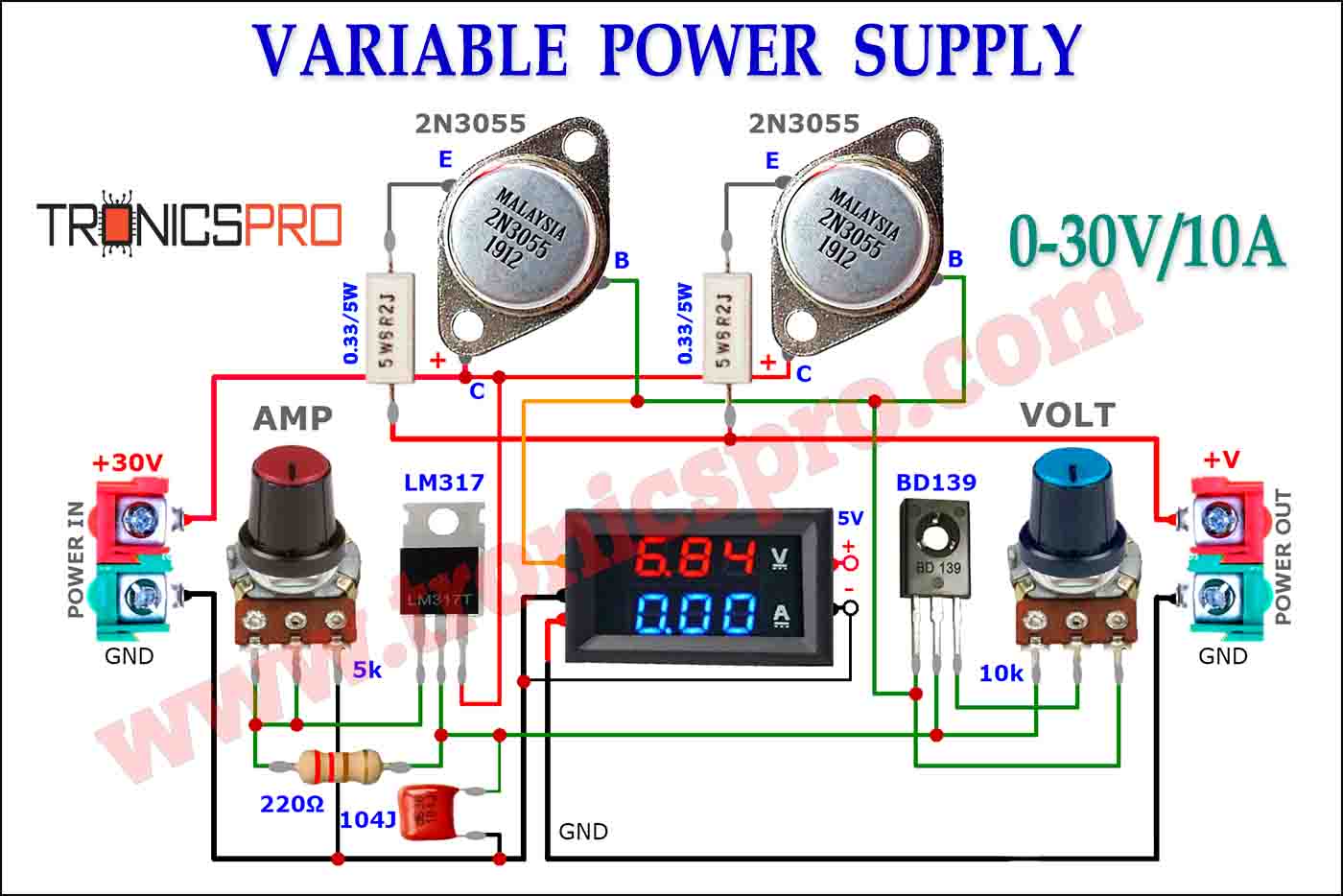

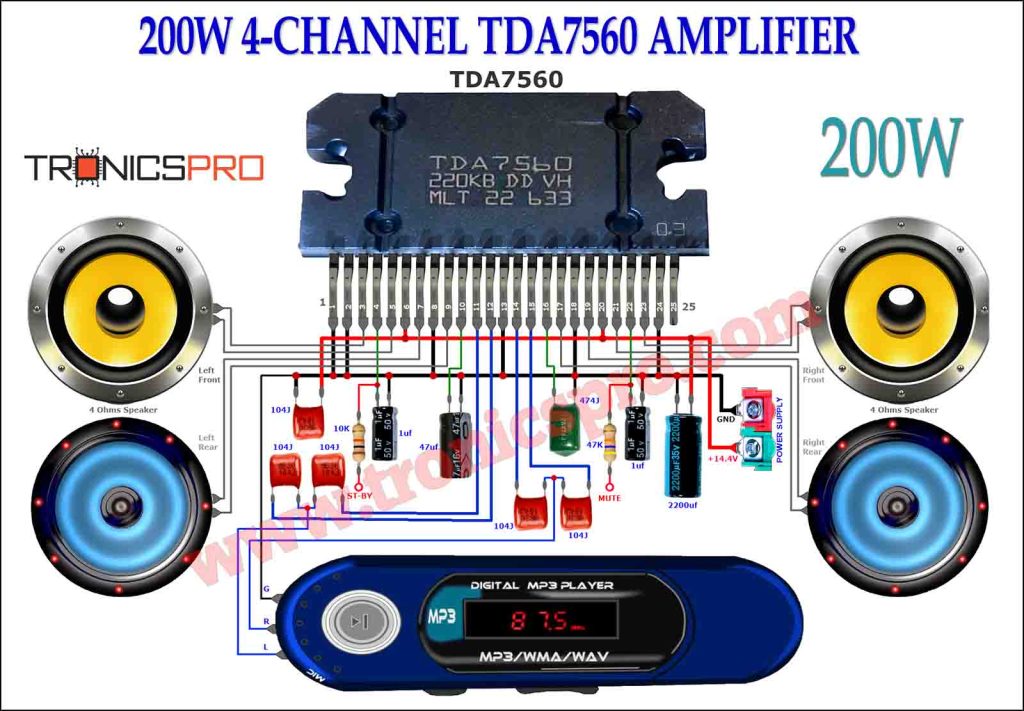
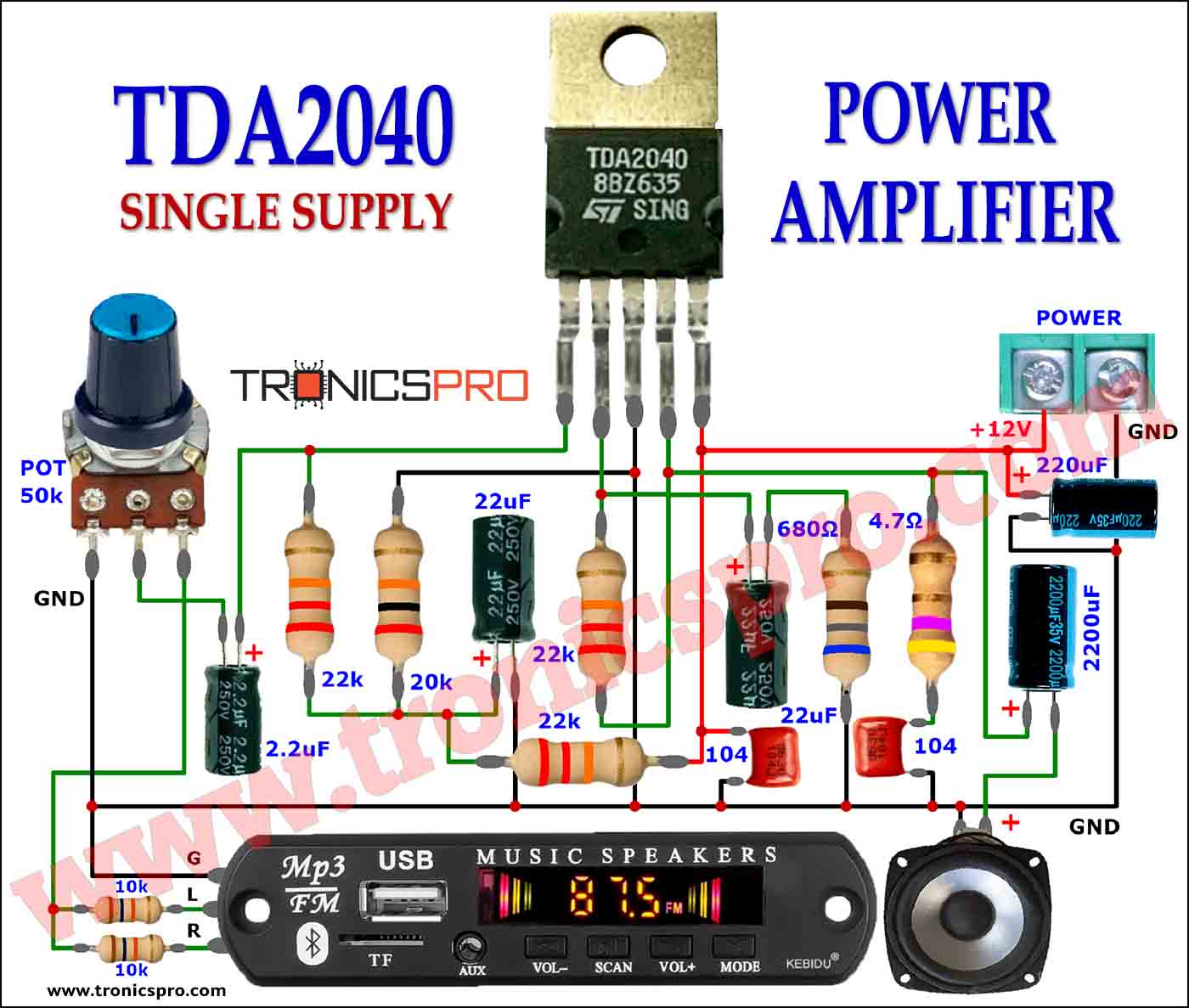
Typical Applications of MJE15031
- High-power audio amplifier output stages
- Switching voltage regulators
- Motor control and inverter circuits
- DC-AC converter designs
- Industrial and instrumentation amplifiers
- Push-pull complementary output stages
NPN Complementary Transistor
The NPN complementary transistor for the MJE15031 is MJE15030. This matched pair is frequently used in audio amplifiers, where both work together in a Class AB configuration to deliver clean, high-output power. Their identical voltage and current ratings ensure perfect signal balance and thermal harmony during operation.
Equivalent Transistors and Alternatives
- MJE15033 (PNP, higher voltage version)
- BD244C (lower power equivalent)
- TIP42C (medium-duty substitute)
- 2SA1943 (high-performance audio replacement)
- MJL1302A (TO-264 package, higher power model)
Comparison Summary: MJE15031 vs MJE15030
The MJE15031 (PNP) and MJE15030 (NPN) are complementary transistors that share identical ratings of 150V, 8A, and 50W. The only difference lies in their polarity—the MJE15031 conducts during the negative half-cycle of the waveform, while the MJE15030 handles the positive half.
When paired together, they form a balanced Class AB amplifier stage, providing excellent frequency response, low distortion, and reliable thermal stability, making them a top choice for both audio and industrial applications.
Frequently Asked Questions (FAQ)
What is the MJE15031 transistor used for?
It’s used in audio amplifiers, voltage regulators, and industrial switching circuits requiring PNP polarity.
What is the package type of MJE15031?
It uses a TO-220 package, ensuring excellent heat dissipation and mounting flexibility.
What is the MJE15031 pin configuration?
The MJE15031 pinout is Base-Collector-Emitter (B-C-E) when viewed from the front.
What is the complementary transistor for MJE15031?
The complementary transistor is MJE15030, an NPN type with matching electrical ratings.
Can MJE15033 replace MJE15031?
Yes, MJE15033 can be used as a higher-voltage alternative in compatible circuits.
Conclusion
The MJE15031 PNP transistor is a reliable and efficient power device used in audio amplifiers, regulator circuits, and switching systems. With its 150V, 8A, and 50W ratings, it provides stability, linearity, and long-term performance under demanding conditions.
When used alongside its complementary transistor MJE15030, it forms a high-performance Class AB amplifier pair, ensuring minimal distortion and outstanding sound clarity—ideal for professional-grade electronics and power amplifier designs.
Datasheet & Pinout of MJE15031 NPN Transistor
Click the following Button to download the datasheet of MJE15031 Transistor :
More projects, You may like:
- Video Transmitter DIY Homemade FM Radio Transmitter
- Adjustable Power Supply DIY Battery Charger
- 12V-220V 500 Watt inverter DIY Homemade
- MPPT Solar Charge Controller DIY Homemade
- DIY LA4440 bass amplifier homemade
For more project and circuit diagrams, you can go through the Schematics in the main menu where you can find many interesting projects and circuit diagrams like audio amplifier circuits, voltage booster circuit, battery charger circuit and timer circuits etc., which are all beginner circuit projects. Feel free to check them out!

Thank you for visiting the article.














